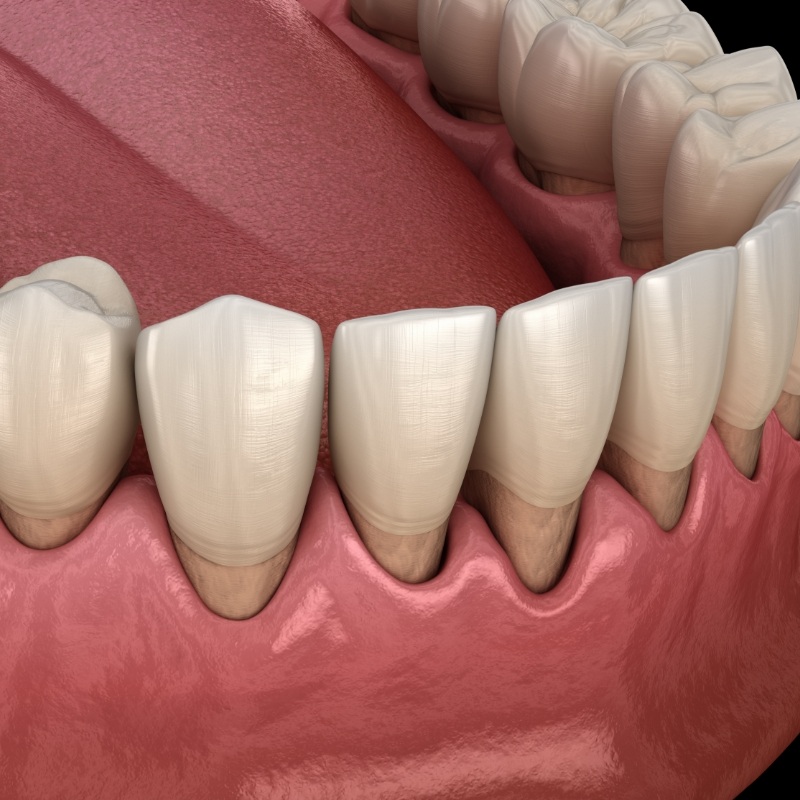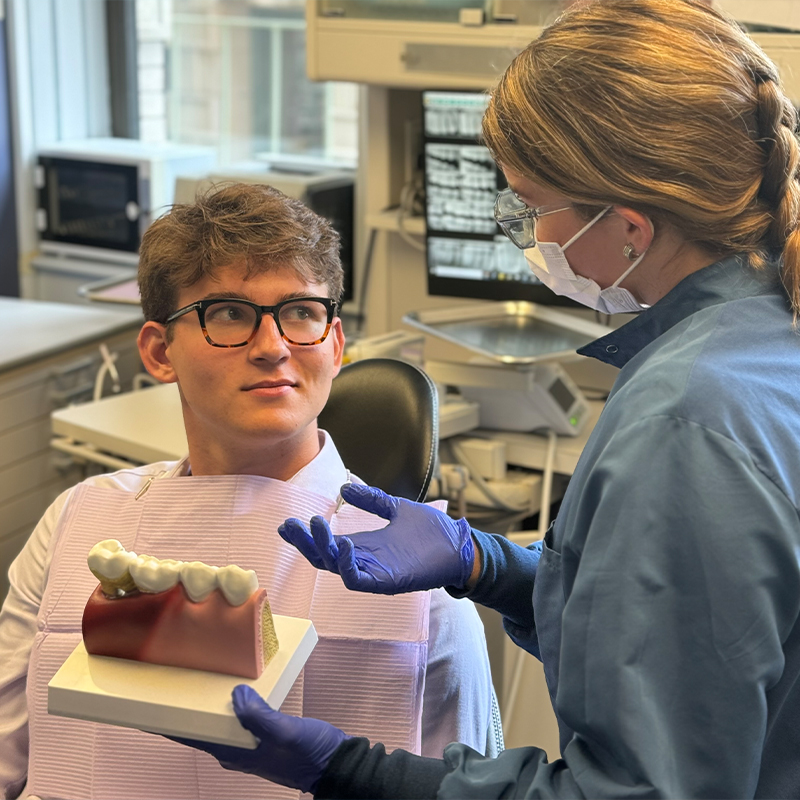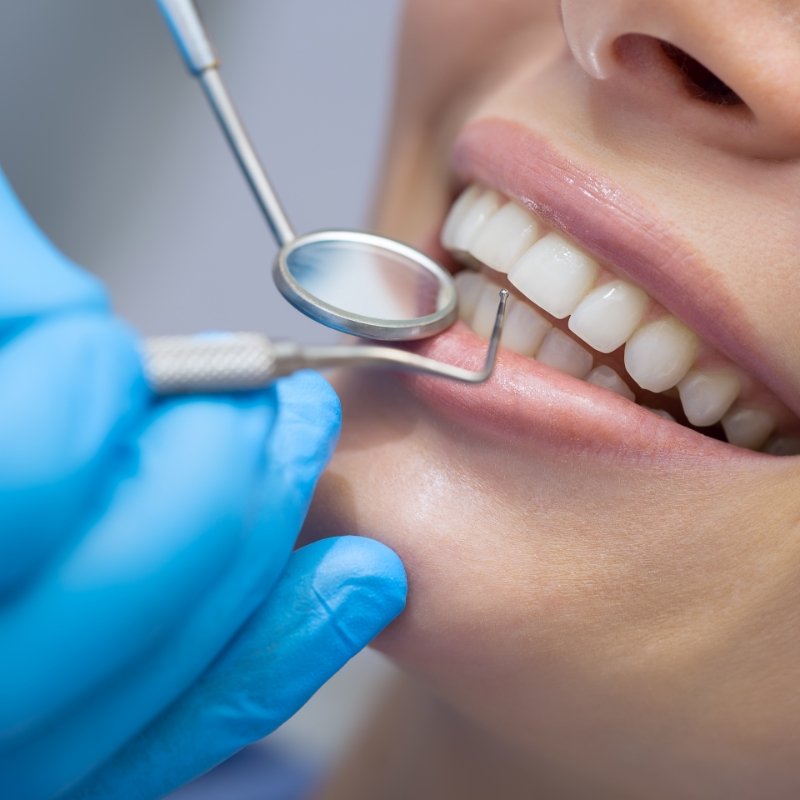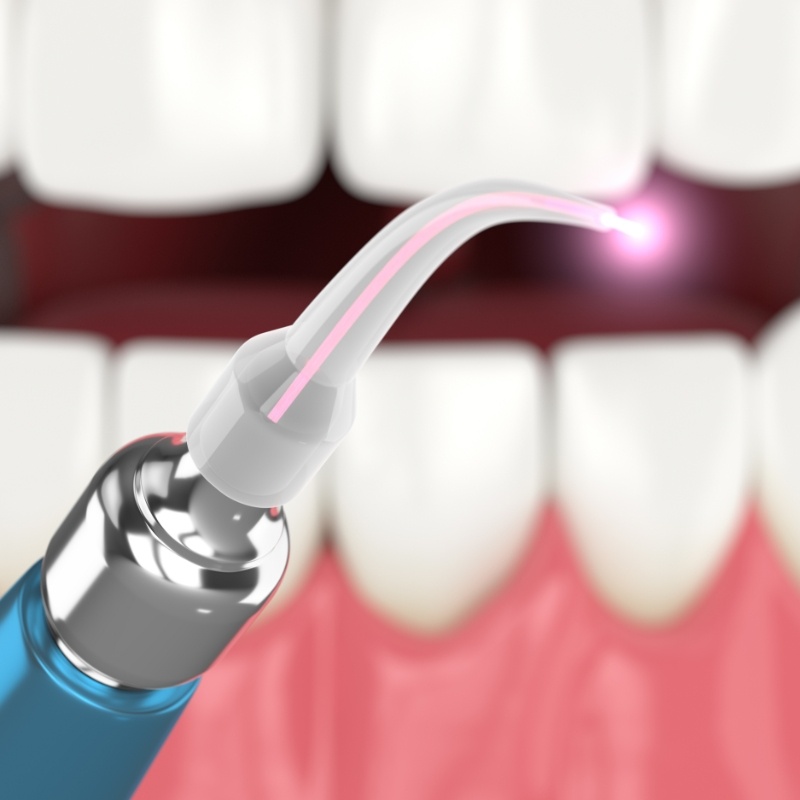Gum Disease Treatment – Boston, MA
Protecting Your Smile & Overall Health
Gum disease is actually a more common dental problem than cavities, especially for adults aged 35 and older. Not only can it lead to swollen and bleeding gums, but it has also been shown to be a leading risk factor for conditions like heart disease, diabetes, and even dementia. That’s why we prioritize gum health at Dental Health & Wellness Boston. Whether you have been diagnosed with the condition or simply think you have it, we’re ready to take care of it using effective methods of gum disease treatment in Boston.
Why Choose Dental Health & Wellness Boston for Gum Disease Treatment?
- 25+ Years of Experience Serving Downtown Boston
- Full Gum Evaluation at Every Checkup
- Fast & Comfortable Laser Gum Therapy
What is Gum Disease?

Gingivitis is the medical term for early gum disease. Gum disease can be caused by long-term exposure to plaque, the sticky, colorless film on teeth that forms after eating or sleeping. Early warning signs include chronic bad breath, tender or painful swollen gums, and minor bleeding after brushing or flossing. In many cases, however, gingivitis can go unnoticed. If gingivitis goes untreated, more serious problems such as abscesses, bone loss or periodontitis can occur. The gums can also begin to separate from the teeth, creating even greater opportunities for infection and decay. Although gum disease is the major cause of tooth loss in adults, in many cases it is avoidable. Pregnancy has also been known to cause a form of gingivitis. This has been linked to hormonal changes in the body that promote plaque production.
How Do We Treat Gum Disease?

The best method for treating gingivitis is a thorough adult prophylaxis (deep cleaning) including a special deep clean of the gums followed by at-home oral hygiene regimens including proper brushing and flossing. Instead of the standard twice-a-year dental visits, patients with gingivitis often undergo follow-up cleanings every two to three months until the condition has cleared.
Scaling & Root Planing

Scaling and root planing is a common, non-surgical procedure used to help reduce the extensive plaque buildup aggravating your gums. It gives you a much deeper cleaning than the basic one, and does require anesthesia, but it will help you avoid the need for surgery to address major complications that would arise if your gums and teeth were left untreated.
Laser Treatment

A laser gum treatment generally includes four steps:
- The laser is used to apply a small amount of light energy between the gum and tooth in the infected area.
- The laser energy removes the diseased tissue on the inside of the pocket and helps reduce bacteria.
- Dental tartar is then dislodged with the help of the laser and removed by using ultrasonic tools.
- Finally, the laser is used to help seal the gum to the tooth to create a natural bond.
Antibiotic Therapy

Although scaling and root planing (SRP) is effective at reducing plaque and some bacteria, it does not kill all of the bacteria that cause periodontal disease. SRP is a mechanical procedure and the instruments used to perform SRP cannot always reach the bacteria that reside at the bottom of deep or difficult-to-reach periodontal pockets. For these pockets, dental professionals often add a locally administered antibiotic (LAA) such as Arestin (minocycline hydrochloride) Microspheres, 1mg to the SRP procedure.
This comprehensive approach provides patients with two therapies that work simultaneously (Arestin + SRP) to help kill the harmful bacteria that cause periodontal disease so that the infection becomes more easily managed and won’t immediately return. Infected pockets inside your gums require treatment before periodontal disease causes further damage. Arestin is indicated as an adjunct to scaling and root planing (SRP) procedures for the reduction of pocket depth in patients with adult periodontitis. ARESTIN may be used as part of a periodontal maintenance program that includes good oral hygiene and SRP.
DNA Testing

In advanced cases of gum disease where conventional gum treatment has been unsuccessful in treating the inflammation and infection in a person’s mouth, DNA testing can be utilized to identify the specific organisms present in the mouth and guide our therapy. After identifying the specific organisms we can prescribe an appropriate systemic antibiotic to fight the infection.
Whole-Body Remedies

In keeping with our focus on health and wellness, we have alternative therapies to offer for the treatment of gum disease. Therapeutic and daily home use of products containing essential oils and supplements to support periodontal health can be recommended by the knowledgeable dental hygienists at Dental Health & Wellness Boston.
